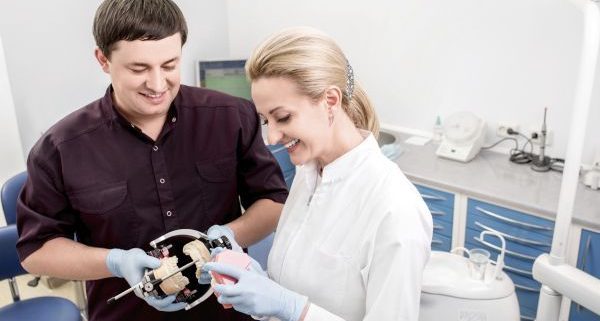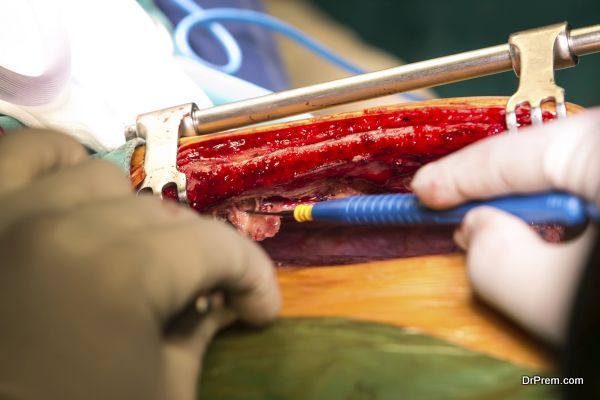An increasing number of people are travelling outside of the UAE to undergo medical procedures, from hip replacements to face lifts. Sudeshna Ghosh takes a look at the top medical tourism destinations.
Up to six million people are expected to travel as medical tourists from the US alone this year, primarily because of lower costs in various Asian countries. Image Credit: Gulf News Archive Four years ago, Dubai-based expatriate Justin Johnny was diagnosed with appendicitis and told he needed immediate surgery. When he looked into options in local hospitals, the total cost for surgery and a hospital stay soared to over Dh3,500 – excluding hospital bills and post-operative care.
As the procedure wasn’t covered by health insurance, he decided to look into other treatment options that wouldn’t require him to spend so much money.
The very next day, he was winging his way to Kerala, India, where he underwent the surgery at a leading hospital for a total cost of Dh1,300 including all treatment and a hospital suite.
In the process, he got to enjoy a holiday and spend time with his family. “I was very pleased with the quality of treatment I received, and would go back to India for treatment, given a choice,” says Justin.
Justin is one of many people who are looking to travel overseas for medical purposes – driven by motives as wide-ranging as cost effectiveness, to the perceived quality of healthcare in the country they reside in. Medical tourism isn’t a new trend.
Historically, people used to travel long distances to thermal spas for health purposes, which is recorded as far back as medieval times. The phenomenon came under the spotlight in the 1990s, this time with a focus on advanced modern medical technologies.
Up to six million people are expected to travel as medical tourists from the US alone this year, primarily because of lower costs in various Asian countries.
According to Dr Prem Jagyasi, chief strategy officer of the international non-profit body, Medical Tourism Association, “The prime drivers of the industry are technology development, cost shifting, an emergence of needs and changes in healthcare facilities.
“Efficient global transport and communication systems like the internet is ‘flattening’ the world.Additionally, when patients do not have health insurance or their health insurance does not pay for all the care they need, it encourages them to search for better options for cost saving. There is also an emergence of new consumer needs, like avoiding long waiting queues and the possibility of having the latest medical treatments, which may not be available in the consumer’s home country or country of residence. Sheer need is thus another driving factor. And, finally, worldwide, hospitals are increasingly adopting the ‘luxurious hotel concept’ rather than traditional unexciting general wards, making the prospect more appealing than ever,” he says.
Suresh Ponnudurai, CEO of Malaysia Healthcare, a Malaysian medical tourism facilitator, adds, “We cannot underestimate the power of the internet. It has made people a lot more savvy, they are able to compare various healthcare providers, and shop around for options. Earlier, they didn’t have these resources at their disposal.”
In a nutshell, if you can get the same treatment at a lower price elsewhere – especially if it is for an elective procedure, such as cosmetic or dental surgery – and have some fun in the sun thrown into the mix, then the question really is, why not?
Here is our short-list of the top medical tourism destinations for people living in the UAE…
Where: India
Why should you go there
For world-class treatments at significantly lower prices. Top hospital chains such as the Apollo group and the Wockhardt group offer a range of high-quality treatments, at prices that are as low as half of the cost of procedures in the UAE.
There’s the added bonus of the availability of drugs that are banned in the UAE, plus, a high standard of medical education means skilled doctors, and ease of communication with a fairly widespread use of English.
Of course, its close proximity is another factor (Mumbai is just over a two-hour flight away) counting in India’s favour. Additionally, alternative schools of healthcare, such as Ayurveda, are also practised widely in many parts of the country, often providing healing where traditional medicine fails.
However, healthcare standards are nowhere close to being consistent, so you have to be careful when choosing your hospital, staying well away from certain healthcare providers who offer very basic facilities.
Top treatments
Some of the most popular procedures that medical tourists opt for in India include diabetology, endoscopic surgeries, nephrology and cardiac surgery.
Tourism attractions India has everything from historical monuments and cultural experiences to gorgeous beaches and scenic mountains. Take your pick, depending on which part of the country you are headed to.
The cost factor According to Dr Jagyasi, healthcare in India is five times more cost-effective than the UAE’s, across all treatment genres. Various cheap flights are available, as are affordable hotels.
Need to know 3EG Consult is a local medical tourism consultancy firm that offers advice and services for various destinations, including India. Expat insurance schemes are available with certain insurance providers. Call 06-5572007. Visas for India are usually processed within three days.
Where: Malaysia
Why should you go there: The Asian triumvirate of Malaysia, Singapore and Thailand are well-established as medical travel destinations. Now with the Malaysian government backing the industry with various incentives to encourage more inbound tourists, Malaysia is emerging as the region’s most attractive option. Medical tourism in Malaysia has grown by about 25 per cent in the past decade, with around 11,000 people going there from the Middle East last year.
With the twin benefits of being a commonwealth and Islamic country, it offers both high levels of English proficiency as well as Muslim cultural sensitivities. An increase in the number of accredited hospitals general upgradation of healthcare infrastructure brings Malaysia to the top of the pile when it comes to medical standards.
Plus, the immigration department has taken several measures to ease the process for medical tourists, such as the recent introduction of a Green Lane system at main entry points to simplify entry procedures.
Top treatments
Malaysia is a well-respected destination for treatment in the areas of ophthalmology, cardiology, gastroenterology, hip replacements and wellness management packages – which includes premier health check-ups, cholesterol, hypertension and weight management.
Tourism attractions
An exotic tropical holiday involving unspoilt, pristine beaches, lush forests, cosmopolitan cities and a peaceful, multi-racial society, makes for a magical mix that is hard to resist.
The cost factor Malaysian healthcare industry experts claim that prices are 30 to 50 per cent cheaper than alternatives such as India and Thailand, making for a very cost-effective option for UAE residents.
Need to know
Medical tourism provider: Malaysia Healthcare (www.malaysiahealthcare.com) is a one-stop facilitator service that can arrange everything from identifying the doctor and hospital, to booking holiday activities, arranging online payments and even organising an on-ground destination manager to look after your needs while there.
Singapore and Thailand offer very similar facilities at competitive prices. Singapore offers a buzzy, cosmopolitan city ambience with truly world class healthcare facilities, while Thailand makes for
a more relaxed, holistic wellbeing experience and has a reputation for cost-effective cosmetic surgery procedures.
Where: Cyprus
Why should you go there Very much an up and coming destination on the healthcare tourism front, the Cypriot government is actively trying to promote the island as a healthcare destination.
Probably not the first place that comes to mind when you think medical travel, this popular holiday spot can now offer an added bonus in the form of quality medical treatment at value-for-money prices.
Easy accessibility from the UAE (it is a short four-hour flight away), and swift turn-around times – there are no waiting lists, operations can be conducted within a week, and you enjoy direct access to specialised doctors – means that this is a quick and easy way to get an elective procedure done.
Many of the hospitals are now internationally accredited or in the process of getting the necessary certification. Most healthcare professionals are UK- or US-qualified, and there’s also a high predominance of spoken English because of Cyprus’ colonial past.
A mild, temperate climate, clean air and water, and the local Mediterranean cuisine which has a focus on fresh, healthy ingredients make for an environment that is additionally conducive to wellbeing.
Top treatments
This is not the place for high-risk surgeries, but more suitable for elective treatments such as cosmetic surgery or dentistry and it is also good for fertility treatments and general health check-ups.
Tourism attractions
The island offers sun-kissed beaches, pine-scented mountains and everything in between. An ancient 10,000-year-old history combines with an idyllic lifestyle, while the beautiful landscape offers the perfect opportunity for activities such as cycling, hiking or swimming, both for recuperative purposes and accompanying friends and family.
The cost factor
The approximate cost of a consultation is about ¤50 (Dh272) which is slightly cheaper than the average cost of a doctor’s visit here, while cosmetic surgery procedure costs start from about ¤3,500 (Dh19,000) which is around the same as getting it done locally.
Need to know
A Cyprus visa is fairly easy to process from the local consulate, visit www.cyhealthservices.com for more.
Where: Germany
Why should you go there
Anything German is usually associated with state-of-the-art technology, and superior standards. So, if you are after high levels of healthcare services, this European country is your best bet.
There are nearly 40,000 people going to Germany currently from the UAE and Saudi Arabia, on the lookout for reliable and professional medical treatments with short waiting periods.
What you will not be going there for is cheap treatments, as, naturally, such complex medical procedures using the latest technologies will not qualify as budget healthcare. However, Germany still offers favourable pricing compared to most other Western nations, and complete transparency when it comes to costs.
Top treatments While the entire gamut of medical treatments and surgeries is available here, its top draws include oncology (treatment of tumours and cancers), including treatments that aren’t available in the UAE, like revolutionary ion-beam therapy for cancer; orthopaedic treatments; and reproductive medicine.
Tourism attractions
Germany, with its stunning countryside of rolling hills and tranquil rivers, colourful cities steeped in history, and a rich culture, offers a unique holiday experience. The pleasant climate aids rehabilitation, and a super-efficient transport system means travelling around the country is a breeze.
The cost factor
Medical treatments in Germany can cost more than the UAE, but certain special cases can be referred to the nationalised Diagnose Related Groups (DRG) system which offers subsidised rates.
Need to know
Organisations such as German Medical Online (www.german-medical-online.com) provide help and objective advice for inbound healthcare travel in Germany, partnering with several university hospitals which means you have access to the latest R&D. They organise itineraries, from flights and accommodation to hospital bookings. Visas for medical tourists are usually processed on a priority basis.
In the Middle East
If you don’t want to travel too far, here are the options you could be looking into:
Jordan: This is the leading medical tourism destination in the region, with a commitment to high standards and an emphasis on healthcare accreditation. Plus, its greatest natural resource, the Dead Sea is a miracle powerhouse of health benefits, adding a unique incentive for travellers.
The most popular treatments undergone here include kidney replacements, neurological surgery and cosmetic surgery, and skin diseases for Dead Sea treatments. Visas are cheap and usually available on arrival. Ayoun Al-Reem is a full-service Jordanian facilitator, visit www.aagt-jo.com.
Iran: Healthcare tourism is at a very nascent stage here, but its close proximity to the UAE works in its favour. Currently, there is just one hospital that is geared towards medical tourists. The Moheb hospital offers comprehensive packages taking care of accommodation and visa issues alongside healthcare. The services available here include cardiology, vascular general surgery and ophthalmology. Visit www.mohebmed.com.
Lebanon: Going by sheer numbers, this is probably the best place in the world for cosmetic surgery procedures. However, by the same token, it is important to choose your healthcare provider carefully. The Clemenceau Medical Centre, for example, is a leading hospital that offers a host of medical services – including plastic surgery – such as hi-tech surgeries, rheumatology and executive wellness check-ups. Cheap flights, easy visa procedures and fantastic tourism offerings make this a great holiday plus elective procedure option. www.clemenceaumedicine.com.
Your personal checklist
Thinking about heading abroad for surgery? These are the important questions you should be asking before you go.
Does the hospital or destination meet your specific healthcare requirements? Are they able to provide comprehensive services for the same?
Is the hospital accredited by an internationally recognised body such as JCI (Joint Commission International) or Isqua?
What sort of pre- and post-operative care and support is available?
Is all the medication you require available in the UAE, or are you allowed to bring them in? If not, you need to ask the doctor for an alternative prescription.
What are the services available in case something unexpected happens? Are you protected in all circumstances?
What are the arrangements for healthcare insurance?
What support does the country provide for cultural requirements (such as religious sensitivities and translation services), legal and ethical issues, and patient privacy laws?
Source: Aquarius






